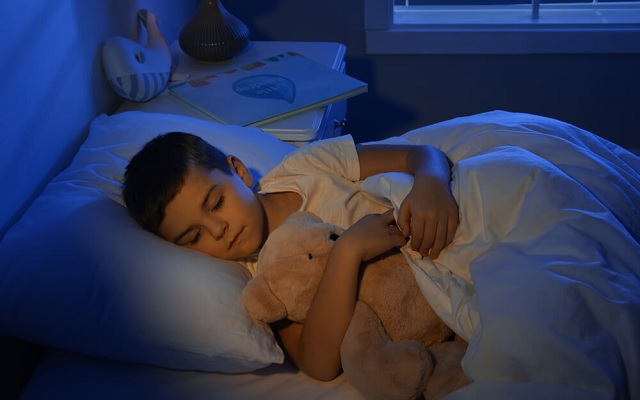5 Benefits of Montessori Beds for Toddlers
What is a Montessori Bed?
A Montessori bed is different from the traditional crib or toddler bed that many parents are familiar with. These beds are designed to be low to the ground, typically without rails or other barriers, allowing toddlers to move freely in and out of bed. This open and accessible design is rooted in the Montessori educational philosophy, which emphasizes the importance of fostering a child’s independence and self-directed learning.
Unlike traditional cribs, where toddlers are confined, Montessori beds give toddlers the ability to make decisions about when to sleep and wake up. The focus is on creating a safe and empowering space where children can explore their environment freely, which aligns with the Montessori approach that encourages independence from an early age.
Key Features of a Montessori Bed:
- Low to the ground, often with no legs.
- No side rails or barriers, offering easy accessibility.
- Minimalist design to encourage an uncluttered sleep environment.
- Part of a larger Montessori-inspired room setup, designed for safety and freedom of movement.
Why It Matters for Toddlers: Montessori beds are an extension of the Montessori philosophy, which holds that children learn best when they are given opportunities to make their own choices. For toddlers, transitioning to a Montessori bed can help develop autonomy, confidence, and an understanding of personal responsibility.
1. Encourages Independence
One of the primary benefits of Montessori beds for toddlers is how they foster independence. By design, Montessori beds are low to the ground, making it easy for toddlers to get in and out of bed by themselves. This accessibility is a core element of the Montessori philosophy, which promotes self-reliance and freedom of choice.
Ways Montessori Beds Encourage Independence:
- Ease of Access: Toddlers can climb into and out of bed without adult assistance, encouraging them to make their own decisions about rest and sleep.
- Freedom of Movement: Without barriers like side rails, toddlers can explore their surroundings independently, fostering both physical and mental development.
- Self-Regulation: By giving toddlers the ability to choose when to rest, Montessori beds help children develop an understanding of their body’s needs, promoting better self-regulation over time.
- Building Daily Routines: As children grow, they begin to associate getting in and out of bed with a daily routine. This autonomy in their personal space helps foster responsibility and routine-following skills.
Positive Impact:
- Toddlers become more confident in their abilities.
- Encourages problem-solving as they learn to navigate their environment.
- Provides a sense of ownership over their sleep routine, which can help reduce bedtime resistance.
Overall, the independence fostered by Montessori beds helps toddlers build confidence and self-reliance, critical qualities that can aid their personal development and social interactions.
2. Promotes Better Sleep Habits

Good sleep habits are essential for a toddler’s growth, and Montessori beds offer a unique way to cultivate these habits. By creating a sleep environment that feels open and inviting, toddlers are more likely to view bedtime positively, helping to establish a healthy sleep routine.
How Montessori Beds Promote Better Sleep Habits:
- Comfortable Sleep Environment: The open design of Montessori beds creates a safe and comfortable space where toddlers feel secure, helping them fall asleep more easily.
- Child-Centered Sleep Routines: When children have control over their sleep environment, they often feel more at ease, reducing the stress that can come with bedtime. This autonomy over their space can lead to fewer bedtime battles.
- Encourages Natural Sleep Cycles: With the ability to move freely in and out of bed, toddlers can listen to their bodies more easily, resting when they feel tired rather than being confined to a rigid schedule.
- Reduces Nighttime Waking: When toddlers feel more in control of their space, they may wake up less frequently in the night due to a sense of security and comfort.
Positive Outcomes:
- Helps toddlers establish consistent sleep patterns.
- Reduces anxiety or resistance around bedtime.
- Contributes to overall well-being and cognitive development due to better quality sleep.
By giving toddlers the tools to manage their own sleep, Montessori beds can contribute to healthier, more sustainable sleep habits.
3. Supports Motor Skill Development
Motor skill development is crucial in the early stages of a toddler’s life. Montessori beds, with their low profile and open design, allow toddlers to move freely, which promotes the development of both fine and gross motor skills.
How Montessori Beds Support Motor Skills:
- Climbing In and Out: Toddlers practice climbing in and out of bed, an action that strengthens muscles and enhances coordination.
- Freedom to Explore: With no barriers like rails, toddlers can explore the room without restriction, allowing them to practice crawling, walking, or climbing.
- Encourages Physical Activity: The freedom of movement promotes active exploration, helping toddlers build confidence in their physical abilities.
- Spatial Awareness: Navigating their environment independently helps toddlers develop a better sense of balance and spatial awareness.
Developmental Advantages:
- Strengthens gross motor skills (such as walking, climbing).
- Improves fine motor skills (such as gripping or pulling up).
- Builds confidence in physical capabilities and problem-solving.
By giving toddlers the freedom to move around, Montessori beds provide a valuable tool for developing motor skills that are essential to overall physical development.
Also Read: Montessori Bed Pros and Cons: A Comprehensive Guide
4. Boosts Confidence and Self-Esteem
Montessori beds not only encourage physical independence but also contribute significantly to a toddler’s emotional development. By allowing toddlers to take charge of their own sleep environment, they begin to feel more confident and capable.
Ways Montessori Beds Boost Confidence:
- Sense of Accomplishment: Toddlers feel a sense of achievement when they can independently manage getting in and out of bed.
- Ownership of Space: Having control over their sleeping environment helps toddlers feel responsible and capable, contributing to self-confidence.
- Decision-Making: Toddlers learn to make choices about their own sleep, building autonomy and self-trust.
- Fostering Responsibility: When toddlers are responsible for maintaining their bed space, they learn important life skills early on, like tidying up or organizing their belongings.
Positive Impact:
- Builds emotional resilience as toddlers handle their personal environment.
- Enhances problem-solving skills and decision-making.
- Provides a boost in self-esteem through daily tasks.
This emotional growth lays the foundation for a confident and independent child, helping them thrive in social and learning environments.
5. Aligns with Natural Developmental Needs
Montessori beds are designed to meet toddlers where they are developmentally. During this stage of rapid growth, toddlers need environments that support their natural developmental milestones, from curiosity to autonomy.
How Montessori Beds Align with Developmental Needs:
- Encourages Exploration: Toddlers have an innate desire to explore their surroundings, and Montessori beds allow them to do so safely.
- Supports Autonomy: By offering a low and accessible bed, toddlers can make independent choices, which helps fulfill their natural need for autonomy.
- Respects the Child’s Pace: Unlike traditional cribs or toddler beds, which may impose a rigid structure, Montessori beds allow toddlers to move freely and follow their own developmental timelines.
- Facilitates Cognitive Development: Through independent exploration and decision-making, toddlers enhance their problem-solving and cognitive abilities.
Developmental Benefits:
- Helps toddlers reach key milestones, such as crawling, walking, and independent sleeping.
- Supports a toddler’s emotional and cognitive growth by respecting their individual needs.
- Promotes curiosity and a love for exploration in a safe, child-centered environment.
By respecting the natural developmental stages of toddlers, Montessori beds create an ideal space for them to grow and learn.
Conclusion
Montessori beds offer a variety of benefits for toddlers, ranging from fostering independence to improving sleep habits and supporting motor skills. Designed to align with a child’s natural developmental needs, these beds are a valuable tool for parents who want to encourage autonomy and confidence in their child. However, it’s important to consider potential challenges, such as increased supervision and ensuring the room is fully childproofed for safety. Overall, Montessori beds can significantly contribute to a toddler’s growth, both physically and emotionally, helping them thrive as they navigate this important stage of life.

Pingback: The Role Of Montessori Beds In Early Childhood Development - Bedding Expertise